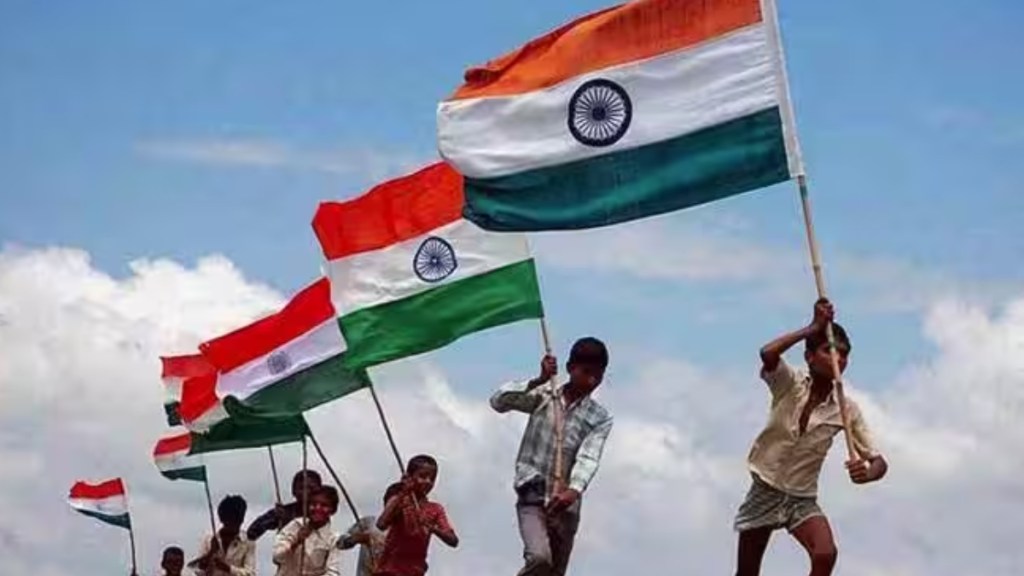By Sujata Shahi
Education in India has undergone a remarkable transformation since gaining independence in 1947. From a system plagued by colonial legacies and a lack of access to quality education for the masses, India’s educational landscape has gradually evolved into a dynamic and diverse ecosystem that strives for inclusivity and excellence. The journey of independent India’s education system has been filled with struggles, challenges, and remarkable achievements that have shaped the nation’s progress.
The evolution of education in independent India has been a dynamic and transformative journey, marked by significant milestones and reforms. Over the years, the education landscape has witnessed substantial changes, and the recent implementation of the New Education Policy (NEP) has played a crucial role in shaping the future of education in the country. The NEP is a comprehensive framework aimed at revamping the entire education system from preschool to higher education, emphasising creativity, critical thinking, and holistic development.
If we look back in ancient India, education was rooted in the Guru-Shishya (teacher-student) tradition, where knowledge was imparted through oral teachings. The primary goal was to preserve sacred texts, pass down cultural and religious knowledge, and develop an individual’s character and values. The modern Indian education system emphasises a broader range of goals, including providing a well-rounded education, fostering critical thinking and problem-solving skills, promoting scientific and technological knowledge, and preparing students for employment and career opportunities.
Specially the right of education act aimed to bridge the gap in access to education and fostered a more inclusive approach. Establishment of IITs, IIMS and other central /state universities in rural areas Schools and colleges were established, particularly in rural areas, have been remarkable initiatives to bring education closer to the masses.
Parallelly focus shifted on Recognising the importance of scientific and technological advancements for the nation’s progress, independent India placed a significant emphasis on science and technology education. The 21st century witnessed a digital revolution that transformed the way education was imparted and accessed. E-learning platforms, online courses, and digital content became increasingly popular, especially during the COVID-19 pandemic when traditional classrooms were disrupted. This technological leap provided access to education beyond geographical boundaries and reached remote areas of the country.
India made significant strides in promoting inclusivity in education. Efforts were made to ensure education for children with disabilities, and special needs schools and integrated classrooms were set up to provide equal opportunities for all learners. Recognising the importance of vocational education and skill development in addressing unemployment and enhancing employability, the Indian government took measures to integrate vocational training into the mainstream education system. Initiatives like the National Skill Development Mission aimed to bridge the gap between industry demands and the skill sets of the workforce.
In recent years, there has been a renewed emphasis on research and innovation in India’s education system. The establishment of research funding bodies and the promotion of startups and incubators in academic institutions have led to a surge in research output and innovation.
Evolution of education in independent India has been a journey of progress and challenges. From a legacy of colonial education to a more inclusive and dynamic system, India has come a long way. While there are still hurdles to overcome, the nation’s commitment to providing quality education for all remains steadfast. As India continues to evolve, its education system will undoubtedly play a vital role in shaping the nation’s future and fostering a skilled, knowledgeable, and empowered citizen.
Although NEP has started the focus on early childhood care and education (ECCE) to higher education. Recognizing the importance of a child’s formative years, the policy aims to provide a strong foundation by focusing on play-based and activity-based learning in the early years. The policy seeks to equip students with 21st-century skills and prepare them for the challenges of a rapidly changing world. However, successful implementation will depend on the commitment and collaborative efforts of all stakeholders – policymakers, educators, parents, and the society at large. Effective implementation remained a challenge as lack of funding, and the need for better monitoring mechanisms often hindered the successful execution of education policies.
While modern education has its challenges, it has made significant strides in providing education to a broader population and adapting to the changing needs of society and the economy. However, there are also valuable lessons to be learned from ancient education systems, such as the emphasis on personalised learning, close teacher-student relationships, and the integration of ethical and moral values in the educational journey.
The author is vice chancellor of IILM University, Gurugram. Views are personal
